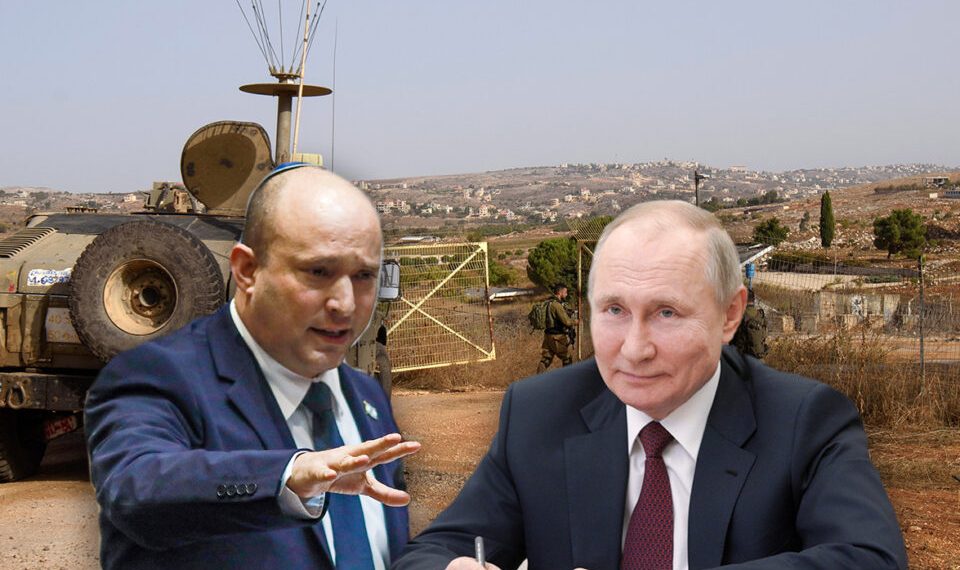AhlulBayt News Agency (ABNA): The Israeli Prime Minister Neftali Bennett is set to visit Russia for meeting with the Russian President Vladimir Putin in the resort city of Sochi on October 22, Israeli media reported. This visit is coming as since Bennett took the office a considerable level of unrest began to cover the occupied Palestinian territories on the one hand and there are an array of reasons signaling change of the power geometry and transition to a new security order in the region on the other hand.
This is Bennett's first meeting with Putin since assuming the office as PM in mid-June. He is working to maintain a cohesive cabinet as well as thwart assaults by right-wing critics such as previous PM Benjamin Netanyahu to secure a convincing picture of Moscow's support for the Israeli security and counter the foreign security challenges. But what is he going to discuss with the Russian leader?
Iranian nuclear issue
As many political observers and media outlets are emphasizing, Iran's nuclear program will be the main focus of Bennett's meeting with Putin. The Israeli PM has stepped up his rhetoric and apparently baseless accusations against Tehran in recent weeks as the possibility of a resumption of Vienna talks between Iran and the P5 + 1 countries rises. In fact, Bennett, frustrated with his strategy of dissuading Joe Biden's administration from returning to a nuclear deal with Iran, made ridiculous demands, such as the need for the Security Council to step in Iran's nuclear program “violations” and a global confrontation of Tehran.
In the current situation, Bennett seems to be trying to sway Putin's position on the way he looks at Iran's nuclear program. The fact is that in the Vienna talks, Moscow is on the Iranian side, so the Israelis are trying to disrupt the coordination and closeness between Tehran and Moscow in the next round of talks. Creation of a crisis of confidence between Tehran and Moscow takes the center stage in the Israeli push.
Boosting bilateral relations
Boosting bilateral military, security, and economic relations is the second goal driving Bennett’s visit to Sochi. Over the past years, officials from two sides exchanged a considerable number of visits, though they can never elevate their relations to a strategic alliance. Close cooperation is the correct term with which their relations can be described.
When it comes to bilateral relations, dialogue is held at the highest levels. Experts, foreign ministries, parliaments, security councils, and leaders have been engaged in negotiations. In the past decade, Netanyahu visited Russia about 20 times and Putin visited the occupied territories 3 times. Even the Israeli regime has so far refused to join the ranks of countries sanctioning Russia and is said to be lobbying in the West against the anti-Moscow restrictions. In Syrian crisis, the two have established a coordination center since 2015. Given such a record of cooperation, Bennett seems to have plans to even further bolster their partnership.
US exit from the region and the requirements ahead
Another reason taking Bennett to Russia is the US withdrawal from the region and the collapse of the balance of power in West Asia and North Africa. Today, the withdrawal of American troops from the region has become an undeniable fact that Israeli strategists are seeking to adapt to. Their main concern is that after the withdrawal of the Americans, developments in the region will go detrimental to their interests and security, so they are already seeking to strengthen their relations with Moscow by adopting multi-level diplomacy as they do at the same time with some Arab countries.
This is despite the fact that Russia has had a significant level of coordination and alliance with the two regional rivals of the Israeli regime, namely Iran and Syria, over the past few years. The Israeli leaders are now seeking, as a result of consultation and coordination with Moscow, to pave the way for cooperation with Russia in the future of the West Asian equations in order to minimize the damage from the post-American situation or, at the very least, avoid political tensions that may follow the conflict of views in important geopolitical cases.
The Palestinian cause
The Palestinian cause and the solutions around it are other factors taking the Israeli PM to Russia. The Israeli leaders now are aware that the unilateral role and mediation of Washington in the Palestinian case are coming to an end and other prominent actors like Russia and China are seeking participation in search of a solution to the decades-long crisis. Meanwhile, Moscow sets its stances on the case in line with the UN resolutions and the Arab peace initiative that calls for a two-state solution. Russia more than once declared its opposition to the Israeli efforts blocking Palestinian formation of an independent state. Unhappy with this Russian policy, Bennett seeks to, at least, put Moscow in a position of passivity concerning the Israeli crimes against the Palestinians.
/129

